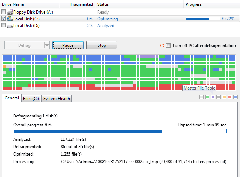 When most people want to purchase a new computer or upgrade their current one, they focus on finding a CPU with the quickest speed, the most computing cores, or the most RAM they can afford. However, they may be overlooking the most likely reason for computing slowdowns: Â fragmentation in the disks.
When most people want to purchase a new computer or upgrade their current one, they focus on finding a CPU with the quickest speed, the most computing cores, or the most RAM they can afford. However, they may be overlooking the most likely reason for computing slowdowns: Â fragmentation in the disks.
Disk drives claim the dubious distinction of being the slowest component on today’s computers, and the more fragmented they are, the more they drag down the performance of the entire system. Fragmentation is the scattering or fragmenting of files on a hard drive from continually writing, deleting, and resizing them. The more you use your computer, the more these bits of data get scattered about. As this happens, it takes longer for the computer to retrieve this data as it reads back from the disk. Defragmentation is the process in which a special software utility is run to arrange all of this data into contiguous spaces on the disk.
Today, frequent defragmentation is becoming more and more important as drive capacities become larger and we start to use our disks more heavily. We now regularly store and retrieve various forms of media such as photos, images, music and videos from our computer disks. Thousands of media files dramatically increase disk fragmentation. We also use our systems to run “virtualized” guest operating systems, which also dramatically increases file fragmentation as these operating systems perform simultaneous read/write operations on the disk. Resident antivirus programs will also slow down disk operation if it is made to continuously read fragmented files. In a business maintaining several computers, these operations will significantly shorten the life span of the drives, and will also contribute to work slowdowns and productivity loss.
So before spending money on a new CPU or RAM upgrade, try defragmenting first.